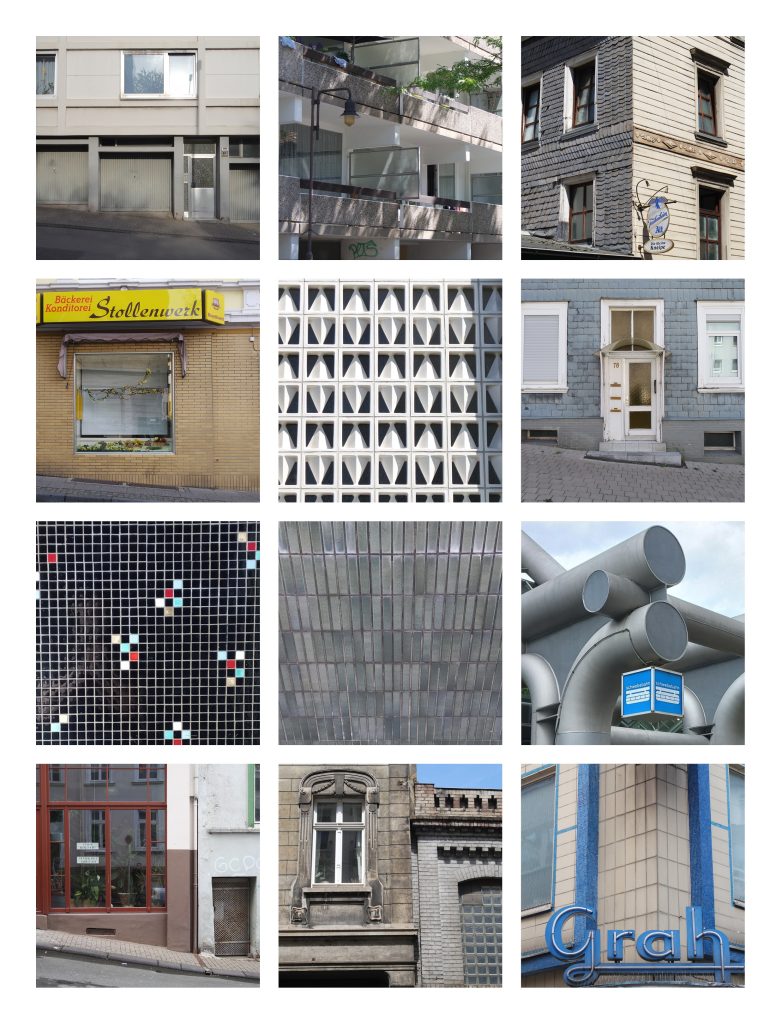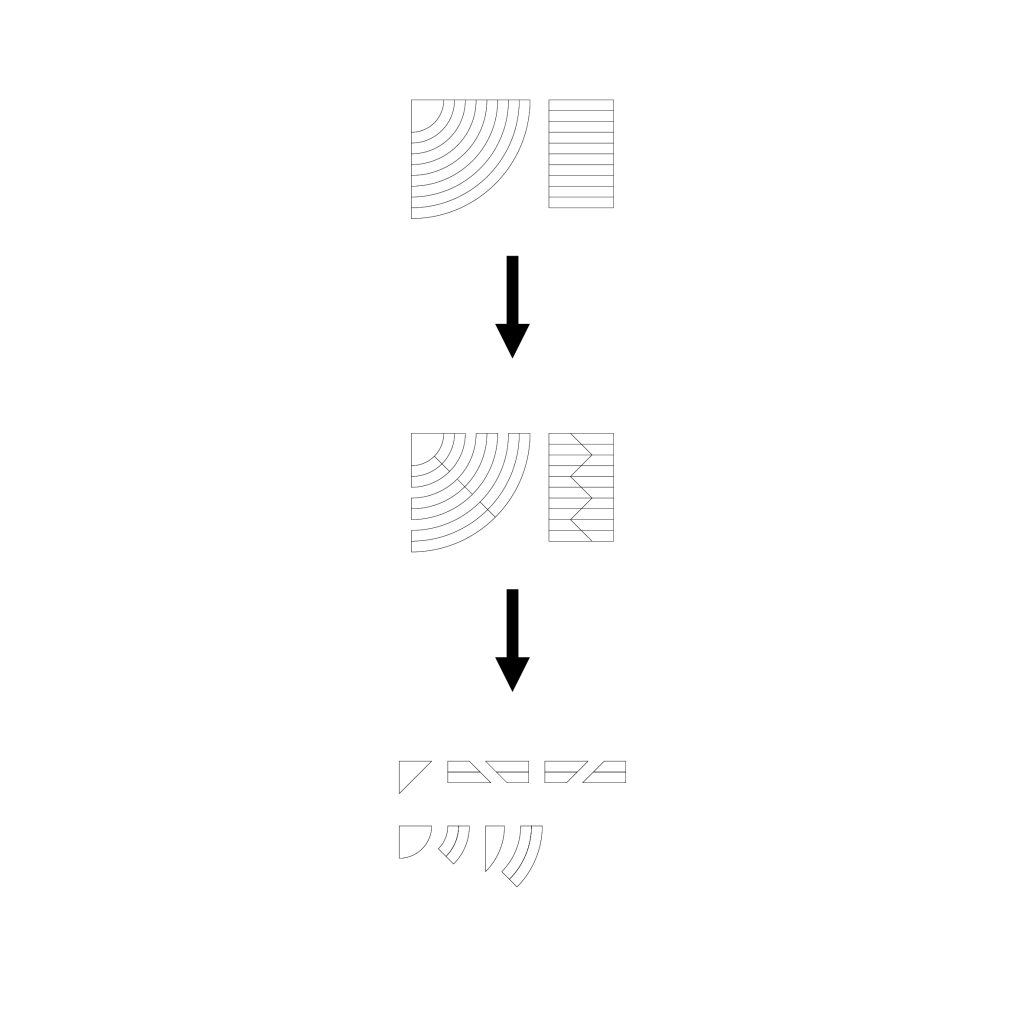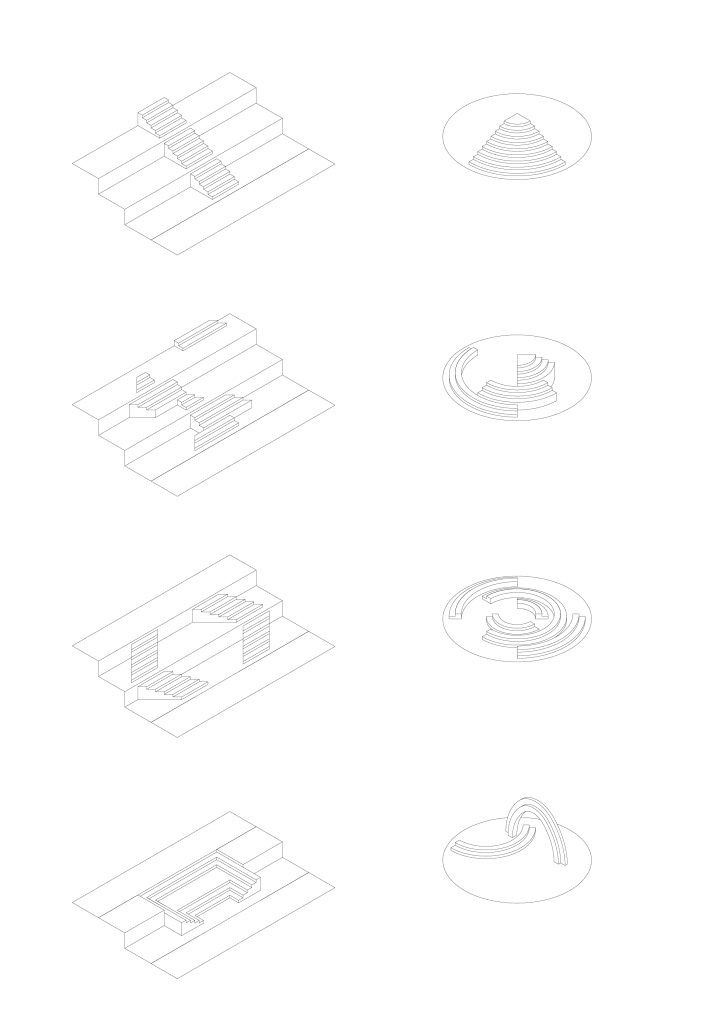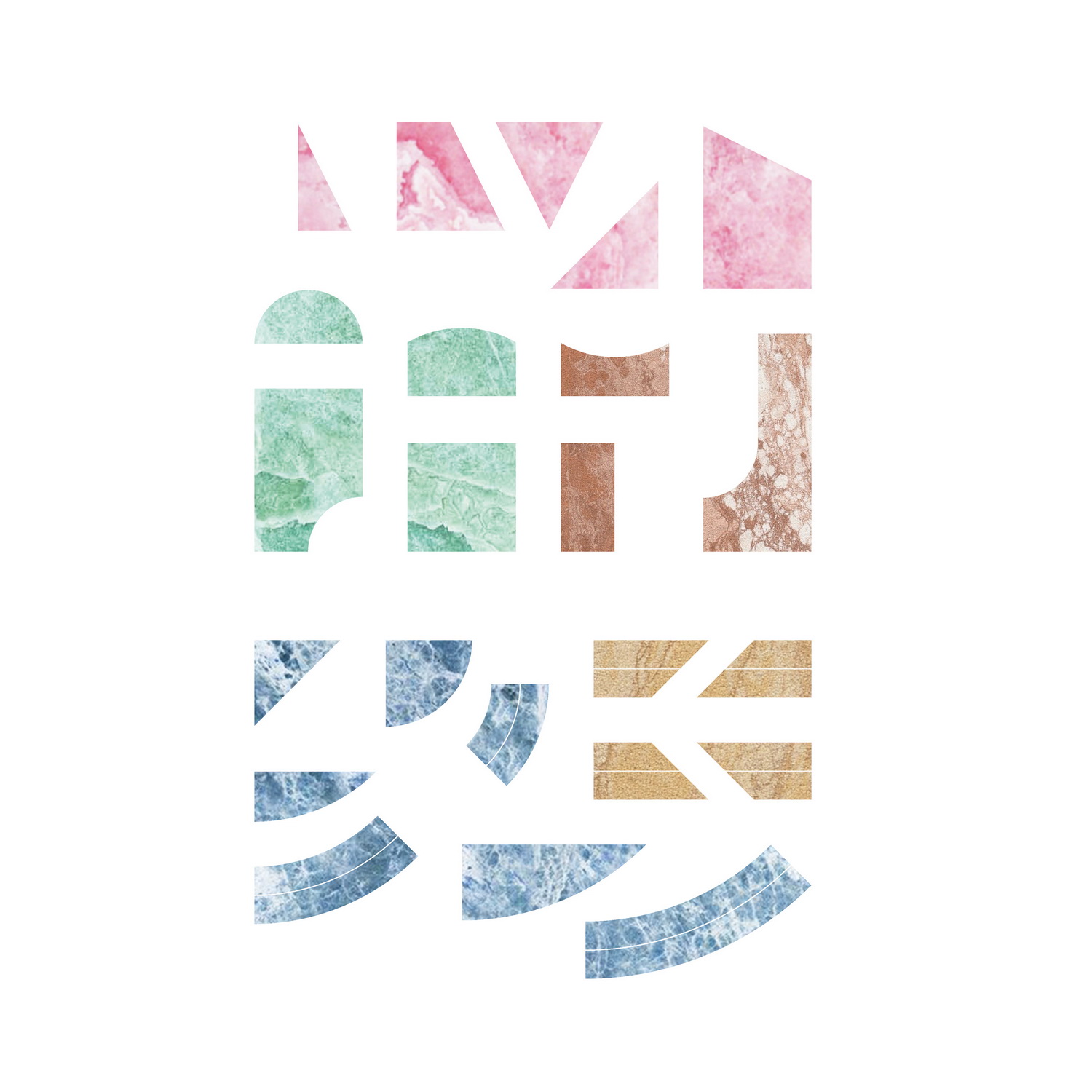Im Rahmen eines Wettbewerbs für ein modulares Bühnensystem für die Oper Wuppertal, belegte unser Beitrag „Fragmente“ den 2.Platz. Bei unserer Beschäftigung mit der Stadt Wuppertal und dem Opernhaus, sind für uns folgende Charakteristika besonders typisch für Wuppertal.
In the context of a competition for a modular stage system for the opera house in Wuppertal, our contribution „Fragments“ won 2nd place. In our engagement with the city of Wuppertal and the opera house, the following characteristics are especially typical for Wuppertal.
Wuppertal – Stadt der Fragmente / Wuppertal – city of fragments
Wer Wuppertal entdeckt, der sieht an jeder Ecke, in jeder Straße, am Ende jeder Treppe, Relikte der unterschiedlichsten Jahrzehnte. Fassaden, Fenster, Gänge und Wege mit besonderen Mustern, Formen, Fliesen, Schindeln und Steinen. Diese enorme, wiedersprüchliche und doch harmonische Vielfalt macht Wuppertal zu einer besonderen Stadt. Es gibt kein klassisches Zentrum, sondern nur einen Zusammenschluss aus Elberfelde, Barmen, Vohwinkel ect. Jeder Ort ist individuell, und doch ist alles Wuppertal. Man steigt eine Treppe empor, läuft vorbei an ehemaligen Fabrikhallen um wieder in einer neuen Wohngegend zu landen, die Verflechtung und überlagerung der Ortsteile und Gebiete, Plätze, Täler und Wege ist allgegenwärtig. Dieses Idee, individueller Fragmente, die ein ganzes bilden, ist die Grundlage unseres Konzeptes für ein modulares Bühnensystem für die Oper Wuppertal. Etwas das sowohl miteinander kompatibel ist und ein Ganzes bilden kann, als auch aus für sich stehenden individuellen Teilen besteht. Eine weitere Charakteristik ist das Wuppertal durch seine Topografie über eine Vielzahl unterschiedlichster Treppenanlagen, verteilt über das ganze Stadtgebiet, verfügt.
If you discover Wuppertal, you will see at every corner, in every street, at the end of every staircase, relics of the most diverse decades. Facades, windows, corridors and paths with special patterns, shapes, tiles, shingles and stones. This enormous, contradictory and yet harmonious diversity makes Wuppertal a special city. There is no classic center, but only an amalgamation of Elberfelde, Barmen, Vohwinkel ect. Each place is individual, and yet everything is Wuppertal. You climb a staircase, walk past former factory buildings to end up again in a new residential area, the interweaving and overlapping of districts and areas, squares, valleys and paths is omnipresent. This idea of individual fragments forming a whole is the basis of our concept for a modular stage system for the Wuppertal Opera. Something that is both compatible with each other and can form a whole, as well as consisting of individual parts that stand on their own. Another characteristic is that Wuppertal, due to its topography, has a large number of different staircases distributed throughout the city.
Wuppertal – Stadt der Treppen / Wuppertal – city of stairs
Diese Treppenanlagen treten in allen denkbaren Formen auf. Manche Anlagen sind von strikter Symmetrie geprägt, andere folgen dem natürlichen Verlauf der Topografie. Manche Treppen haben verzierte Eingänge und Abgänge. Viele der Treppen sind versteckt, verbinden unbemerkt benachbarte Straßen oder verschwinden fast im Stadtbild. Manche Treppen sind zu Kunstobjekten geworden, andere verfallen. Mit dieser Formenvielfalt möchten wir uns gerne weiter beschäftigen, Referenzen zu verschiedenen Orten ziehen. Ein erster Vorschlag unsererseits für Module beinhaltet daher ganz grundlegend, die Idee mit Treppen auch auf der Bühne zu arbeiten, sei es symmetrisch, geschwungen oder fragmentarisch.
These staircases appear in all conceivable forms. Some installations are characterized by strict symmetry, others follow the natural course of the topography. Some staircases have ornate entrances and exits. Many of the staircases are hidden, connecting neighboring streets unnoticed or almost disappearing into the cityscape. Some stairs have become objects of art, others have fallen into disrepair. We would like to further explore this diversity of forms, draw references to different places. A first proposal for modules on our part therefore includes, quite fundamentally, the idea of working with stairs on stage as well, be it symmetrical, curved or fragmentary.
Wuppertal – Stadt der rauen Moderne / Wuppertal – city of post-war modernism
Wuppertal ist keine Sonntagsstadt, sondern eine raue Arbeiterstadt. Viele der nach dem Kriege neu gebauten Häuser verfügen über interessante Fassaden, Muster von Fliesen, Schindeln und Schiefer. Diese Materialvielfalt möchten wir gerne, nach Möglichkeit, in den Prozess der Entwicklung der Bühnenbilder mit einbeziehen.
Wuppertal is not a Sunday town, but a rough working-class city. Many of the new houses built after the war have interesting facades, patterns of tiles, shingles and slate. We would like to include this diversity of materials, if possible, in the process of developing the stage sets.



